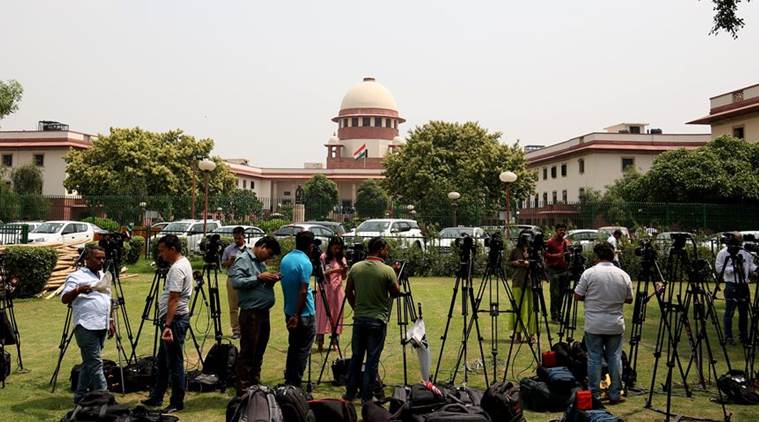No place for the IPC
Supreme Court holds adultery, marriage to be civil matters. Shouldn’t this hold for triple talaq?

The new judicial verdict is being misunderstood in ill-informed circles as a licence for licentious behaviour. (File)
“It is better, from the point of view of the interests of the society, that at least a limited class of adulterous relationship is punishable. Stability of marriages is not an ideal to be scorned” said Justice Chandrachud senior, a third of a century ago (Sowmithri, 1985). He was deciding a writ petition challenging the constitutional validity of section 497 of the IPC, relating to adultery.
“This court has recognised sexual privacy as a natural right protected by the Constitution. To shackle the sexual freedom of a woman and allow criminalisation of consensual relationships is a denial of this right,” now says Justice Chandrachud Jr, about the same legal provision (Shine, 2018). This sea change in judicial approach provision reflects the proverbial generation gap for which the last CJI, Dipak Misra, has an apology: “The progression in law and the perceptual shift compels the present to have a penetrating look to the past.”
The new judicial verdict is being misunderstood in ill-informed circles as a licence for licentious behaviour. Far from it. Section 497, which it has struck off, was indeed obnoxious. It spoke of a matrimonial offence, not by a married woman against her husband but by another man against him.
Addressing men, it said “if you have sex with a woman married to someone else with her free consent (without that it will be a different offence called rape), it will be adultery on your part for which you will be punished if her husband complains of it, of course you are free to do that with her husband’s consent or connivance,” or of her husband-appointed custodian as provided in section 198 (2) of Criminal Procedure Code.
In other words, she is her husband’s chattel. For not making the woman liable to punishment in any such case, a justification had been given by the framers of the code over one-and-a-half centuries ago — that Indian marriages were potentially polygamous (which was then true of all personal laws) and men could have more than one wife so let women, who are not allowed this luxury, have the freedom to enjoy sex outside wedlock. Strange logic, but Britons have always preferred adultery to plural marriages.
The Shine judgment has not “decriminalised” extramarital sex in the sense of making it a lawful activity — the court’s stand simply is that men’s grievance about their wives’ sexual infidelity falls in the domain of private law and should, therefore, be dealt with under matrimonial laws. Women’s grievance about their husband’s sexual infidelity is dealt with only by marriage laws, there is no space for it in criminal law, so why retain gender discrimination in this matter; that can be seen only as ultra vires the constitution?
The first Indian family law to treat adultery as a ground for dissolution of marriage was the Indian Divorce Act 1869 meant for Christians. The Dissolution of Muslim Marriages Act 1939, enabled women to seek divorce if the husband “associates with women of evil repute or leads an infamous life, or attempts to force her to lead an immoral life”. Its framers were concerned about prostitution and not simply adultery.
During 1954-55, the Special Marriage Act and Hindu Marriage Act made “living in adultery” by either spouse a ground for divorce or judicial separation. Twenty-one years later, this ground was changed to “voluntary sexual intercourse” with anyone other than the spouse. The option of awarding judicial separation depending on the chances of reconciliation was, however, retained for the courts.
The SC’s new verdict that matrimonial issues fall in the realm of civil law and need not be resolved by criminal law is quite rational. But should not the ideology be uniformly applicable to such issues for all sections of citizens? By this yardstick, should not the Triple Divorce Ordinance now under challenge in the court fall flat? Is the country’s ever-angry law minister listening?
The writer is former chair, National Minorities Commission and member, Law Commission of India
For all the latest Opinion News, download Indian Express App
More From Tahir Mahmood
- The commission’s omissionsLaw panel’s recommendations on personal law are selective, ill-judged...
- Prime Minister who was a poetAtal Bihari Vajpayee’s poems are a part of his legacy that must not be ignored...
- Commissions Of InactionNational commissions are white elephants: Expensive and ineffective. ..








































No hay comentarios:
Publicar un comentario